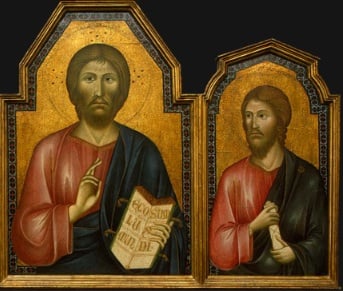 The next passage we deal with in James is 2:8-13, and it reveals that James — like his brother and then also like Paul and John — made direct use of the Shema + Lev 19:18, which I call the “Jesus Creed.” Notice these words from James 2:8-13:
The next passage we deal with in James is 2:8-13, and it reveals that James — like his brother and then also like Paul and John — made direct use of the Shema + Lev 19:18, which I call the “Jesus Creed.” Notice these words from James 2:8-13:
8 If you really keep the royal law found in Scripture, “Love your neighbor as yourself,” you are doing right. 9 But if you show favoritism, you sin and are convicted by the law as lawbreakers. 10 For whoever keeps the whole law and yet stumbles at just one point is guilty of breaking all of it. 11 For he who said, “Do not commit adultery,” also said, “Do not murder.” If you do not commit adultery but do commit murder, you have become a lawbreaker.
12 Speak and act as those who are going to be judged by the law that gives freedom, 13 because judgment without mercy will be shown to anyone who has not been merciful. Mercy triumphs over judgment!
There’s much to say; here’s what comes to mind for me:
First, James is willing, again like Jesus and like Paul and like John, to reduce the Torah into love of neighbor. The point is that genuine perception of the Torah and all its separable commandments and prohibitions leads to seeing each and every command/prohibition as an instance of love (of others is James’ emphasis). Of course, love must be defined properly, but the point James makes is the supreme importance of relationality to others in living before God.
Second, treating the poor with disdain — by not treating them as equals — and treating the rich as special are instances of not loving your neighbor as yourself.
Third, James calls this the “royal” law — and this is not unlike the “perfect law of liberty” in 1:25. The law to love your neighbor as yourself is “royal” since it is the capital, most important, climactic law of them all.
If you follow the royal law of loving your neighbor as yourself, “you do well.” I.e., you are doing what the Law intends.
This is serious stuff. Neither an escape nor a way of liberation to do what you want, the law to love others is death to self. It is the cross.

